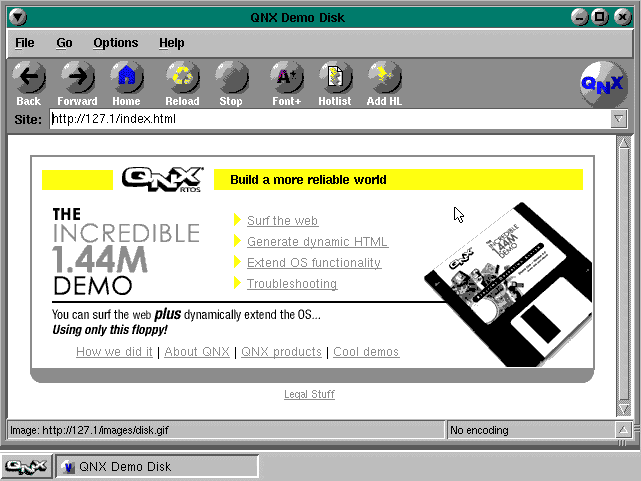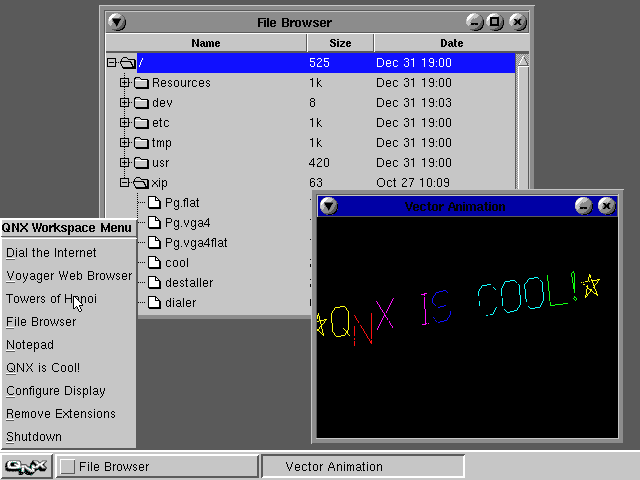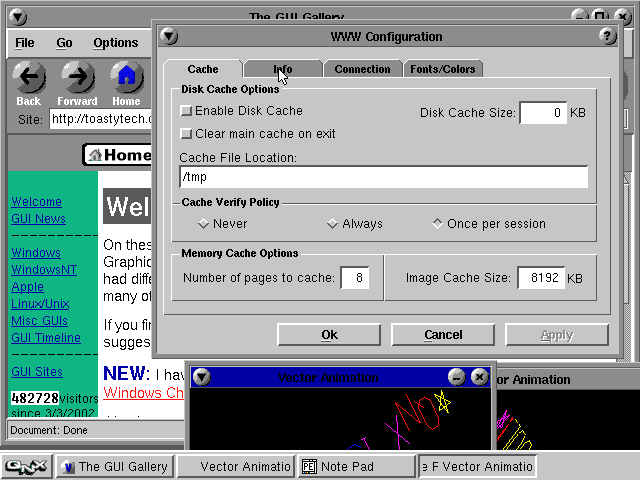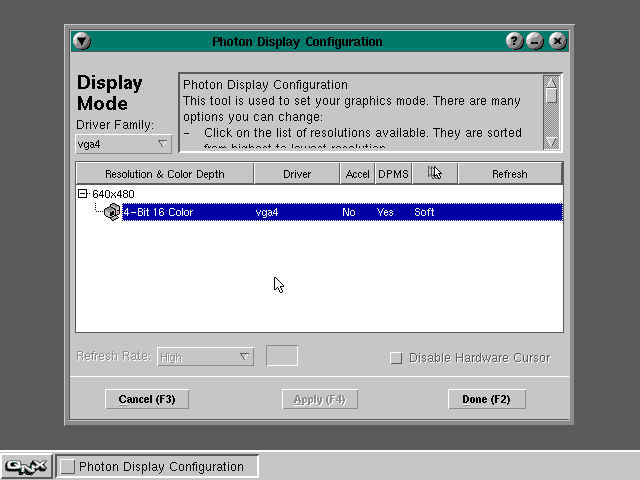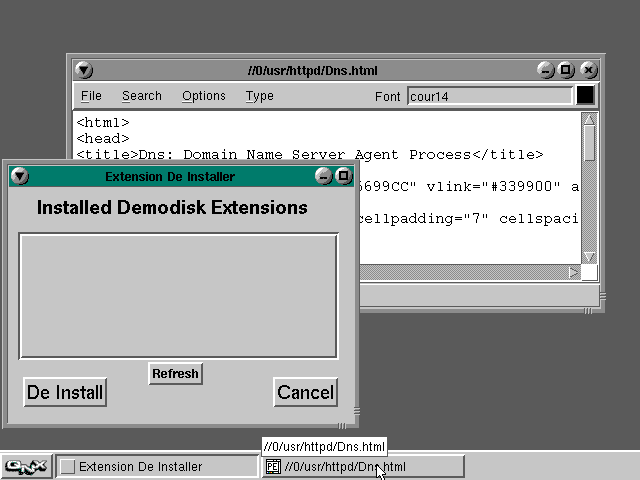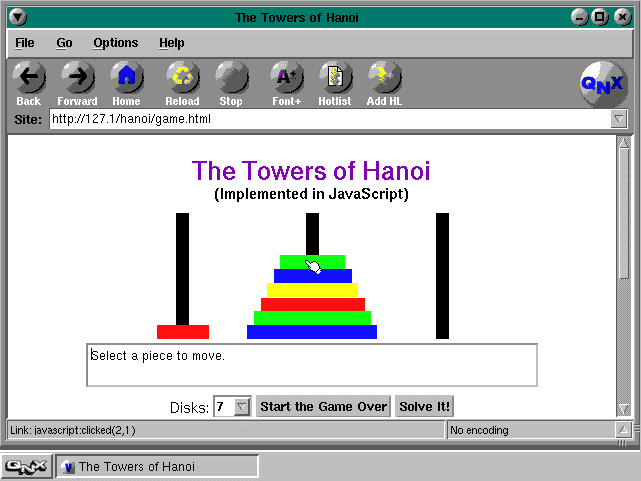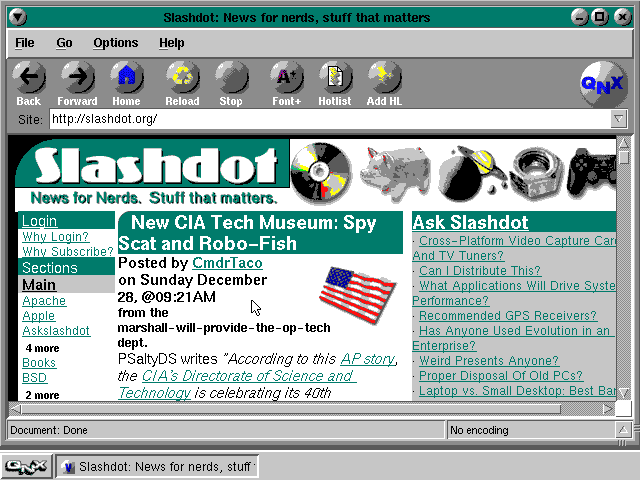|
|
Location: GUIs >
QNX >
QNX Demo Disk QNX is a powerful real-time operating system. You may have used QNX and not even known it. QNX is used in industrial, network, telecommunications, medical, and automotive devices. A while back QNX made available two 1.44 meg bootable demo disks. Each disk boots and loads completely from a 1.44 meg floppy disk. No hard disk is required! Each disk contains the OS, GUI, PPP or networking, Web browser, file browser, and several demo applications. Since the correct downloads are kind of hard to find these days, here are direct links:
Hardware requirements:
Please note that the network version only supports a couple of old network cards and will therefore not work in more recent computers, or most virtualizers/emulators. (Sadly there is no minimum standard for network interface card compatibility, as a result every model of NIC requires a unique driver). It also dosn't like most newer DHCP servers. Additionally the modem version does not recognize the lobotomized "winmodems" found in most pentium era computers. (winmodems lack the hardware processors that older real modems have and therefore require proprietary software from the manufacturer to emulate this hardware).
The file browser lets you look at the files loaded in the ramdisk, although it does not do much else. The "QNX Is Cool!" demo spins the text "QNX IS COOL!" in a window. You can open up multiple instances of this and they will continue to run smoothly.
These screen shots were taken using BOCHS in basic VGA mode, so some of the graphics do not look as nice as they should.
Also shown here is the included Notepad application. Likewise anything edited in notepad will not be saved to the demodisk, just to the ramdisk.
|
